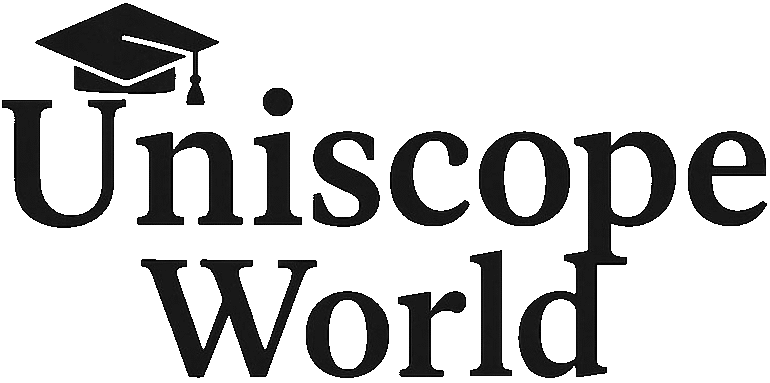The University of Melbourne is known for being one of Australia’s top universities, which makes many people wonder about how hard it is to get accepted. The short answer is that getting into the University of Melbourne can be challenging, especially for popular and competitive courses, but it is not impossible with strong grades and effort. It accepts around 70% of applicants, but this rate varies depending on the program and whether the student is local or international.
For many courses, a high ATAR score or equivalent is required, and some fields, like medicine, are especially tough to get into. At the same time, there are pathways for students to enter through diplomas or less competitive programs before moving into degrees. Knowing the requirements and preparing well can make a big difference in the application process.
Admissions Criteria at the University of Melbourne
Applicants need to meet clear academic and language standards. They must also check if certain subjects are required for their chosen course. These criteria ensure students are ready to succeed at the university.
Academic Requirements
Students applying for undergraduate courses usually need to have completed their senior secondary education, like 10+2 or equivalent. The University of Melbourne accepts qualifications from recognized institutions around the world.
Grades matter, but acceptance rates indicate the university values a wide pool of applicants. For some courses, a specific minimum grade or rank is required. Others may consider overall academic performance or standardized test scores like the SAT.
Applicants should check individual course pages because requirements vary. They can expect to provide official transcripts and proof of prior qualifications as part of their application.
English Language Proficiency
All international students must prove they can use English well enough for study. The University of Melbourne accepts several tests for this.
Scores required are usually:
- IELTS: 6.5 overall with no band below 6.0
- TOEFL iBT: 79 overall with a minimum in each section
- PTE Academic: 58 overall with no communicative skills below 50
These scores show the student can understand lectures, write essays, and take part in discussions. Some exceptions apply if students studied in English previously or come from an English-speaking country.
Prerequisite Subjects
Certain courses require students to have studied specific subjects before applying. For example, science degrees often ask for high school courses in math or chemistry.
Prerequisites vary by program, so students should carefully check the list for their course. Not meeting these requirements might mean their application cannot be considered.
The university provides clear details on which subjects are needed. This helps students plan their studies before applying to meet these subject requirements.
Application Process Overview
The application process for the University of Melbourne involves submitting a clear online form, meeting specific deadlines, and providing key documents. Each step requires careful attention to ensure the application is complete and meets university standards.
How to Apply
Applicants start by filling out the online application form through the University of Melbourne’s official portal. They must carefully select their desired course and provide accurate personal details.
In addition to the basic form, applicants often need to upload responses to selection criteria or personal statements, depending on the course. Some courses may ask for supplementary materials or portfolios.
For international students, proof of English language proficiency is required. The university also offers guides and advice to support applicants through the process.
Key Application Deadlines
The university has strict deadlines to keep the admissions process on schedule. Most undergraduate course applications close several months before the start of the academic year.
For example, the main deadline for semester one intake is usually around late September of the previous year. Some courses or scholarship applications may have earlier deadlines.
Missed deadlines can delay or prevent entry, so applicants should check the official university website for exact dates and plan accordingly.
Required Documentation
Applicants must provide proof of their previous academic results, such as high school transcripts or equivalent certificates like IB or A-levels.
If applying as an international student, official English test scores (IELTS, TOEFL) are necessary. The exact minimum required scores vary by course.
Additional documents may include a resume, letters of recommendation, or a personal statement if requested. All documents should be officially certified and submitted before deadlines.
Acceptance Rates and Selectivity
The University of Melbourne admits many students each year, but the chance of getting in depends on both the program and the applicant’s qualifications. Some areas are more competitive than others, and overall acceptance rates give a useful but broad idea of admission chances.
Estimated Acceptance Rates
The acceptance rate at the University of Melbourne is generally around 70% to 77%. This means out of every 100 applicants, about 70 to 77 get admitted. The rate suggests the university takes in most qualified students who meet the entry requirements, especially those with good academic records and English skills.
The acceptance rate can vary year to year and depends on factors like the number of applications and availability of places. These rates apply to both local and international students, but meeting English proficiency, such as an IELTS score of 6.5 or higher, is important for admission.
Competitiveness by Program
While the general acceptance rate is moderate, some programs are harder to enter due to limited spots or higher demand. For example:
- Medicine and law programs tend to be very competitive, requiring top grades and additional tests or interviews.
- Engineering and business courses also receive many applications, making them moderately selective.
Other degrees in arts or science may have higher acceptance rates. Applicants with strong academic results and a balanced profile that includes extracurricular activities or relevant experiences improve their chances in competitive fields.
Tips for a Strong Application
A strong application to the University of Melbourne focuses on clear evidence of academic ability and a well-crafted personal story. Attention to detail and meeting all requirements increases the chances of success.
How to Stand Out
Applicants should show strong academic results that meet or exceed the course entry requirements. For example, international students often need high marks in their previous studies, like 96% or above in certain Indian certificates.
Letters of recommendation matter. These should come from teachers or employers who know the applicant well and can speak about specific skills or achievements.
Meeting English proficiency standards is crucial. Tests like IELTS or TOEFL scores must be submitted on time.
Applicants can also highlight relevant work, volunteer experience, or extracurricular activities that connect directly to their chosen course or future career plans.
Personal Statement Advice
The personal statement needs to clearly explain why the applicant wants to study at the University of Melbourne and how the course fits their goals.
It should include:
- Specific examples of skills or experiences
- Future aspirations connected to the program
- Challenges overcome or unique perspectives brought to the table
The statement should be well-written, free of errors, and honest. Avoid vague phrases and focus on concrete details.
Applicants should also tailor the statement to the University, showing knowledge of its community or learning style.
Alternative Entry Pathways and Support
The University of Melbourne offers several options for students who do not meet direct entry requirements. These options help students find a way to start their studies and gain the skills they need to succeed.
Special Consideration Schemes
Special consideration schemes help students who face unusual challenges during their application. These may include illness, personal hardship, or other serious issues.
Applicants can ask the university to take these circumstances into account when reviewing their application. This can sometimes adjust entry requirements or deadlines to better fit the student’s situation.
To apply, students usually need to provide official evidence like medical certificates or supporting documents. The university reviews each case carefully and fairly.
This scheme is designed to make the application process more flexible and fair for students with genuine difficulties.
Foundation and Bridging Courses
Foundation and bridging courses prepare students for undergraduate study when their previous qualifications don’t meet entry standards.
These courses focus on building academic skills and knowledge needed for university-level work. They cover topics like English, maths, and study skills.
Completion of a foundation or bridging course can lead to direct entry into certain undergraduate degrees at the University of Melbourne.
Students benefit by gaining confidence and a solid academic base before starting their main degree program. This pathway is especially helpful for international students or those changing study fields.
FAQs
Is it hard to get into the University of Melbourne?
Admission is moderately difficult. The acceptance rate is about 70%, but some courses, especially popular or specialized ones, are much more competitive.
Which courses are most competitive?
Medicine and some honours or master’s programs require very high marks. Some undergraduate courses accept only the top 1% of applicants.
Does having good grades guarantee entry?
Good grades help, but many applicants have strong academic records. For some programs, meeting entry requirements does not guarantee admission due to limited places.
When should applicants apply?
Applications open in April. Early application is recommended, as some courses and residential colleges have high demand.
Are there special rules for international students?
Yes, international students need to meet minimum entry scores, course prerequisites, and English language requirements. These vary by program.
Can students get guaranteed entry with extra steps?
Domestic students can sometimes secure guaranteed entry by completing bridging subjects and meeting the required marks.
Where can applicants get more help?
They can check official university FAQs or contact support services for details on scholarships, course types, and application help.



